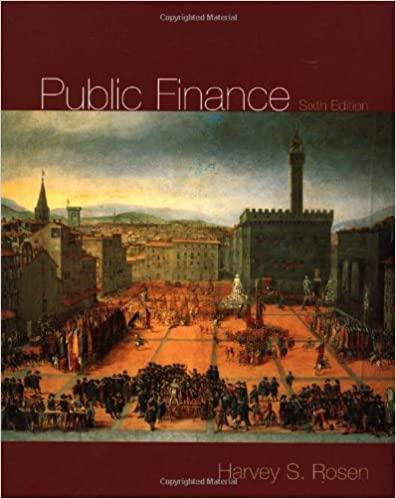Question
INVESTMENT PLAN Create a mutual fund investment plan for Betty Johnson, based on her cash flow surplus and available investment assets (cash flow analysis and
INVESTMENT PLAN
Create a mutual fund investment plan for Betty Johnson, based on her cash flow surplus and available investment assets (cash flow analysis and financial profile provided). Use a report format that includes an analysis of her financial situation followed by recommendations that satisfy all of her financial objectives.
The report should be typed and include a cover page, brief introduction, and recommendations for each objective. Make sure you explain the reasons for your recommendations, e.g. why the fund is suitable for Betty given the circumstances. You also need to indicate the fees the client will be paying on mutual funds you recommend, including your compensation. Assume that deferred sales compensation (DSC) is no longer available.
Prepare the plan as though you are actually submitting it to the client. Make sure that your analysis and recommendations are consistent with the following:
INVESTOR PROFILE:
Age: She is 50 years old.
Investor knowledge: Moderate
Risk Tolerance: She is considered medium risk and can accept a maximum portfolio decline of 25% in any one year period.
Occupation: She is a human resources manager at BC Ferries.
Income: $80,000 gross before taxes per year
Marital Status: Single
Dependents: none
Special preferences: none
Investment Objectives:
She would like to set aside the equivalent of three months gross income in the event of an emergency. Betty would like to do this as soon as possible with cash she has readily available. Determine the amount and type of mutual fund she should use and explain why. (3 marks)
Betty wants to build up her RRSP to $800,000 by her age 65. She is currently 50 years old. Assume maximum annual contributions of $10,000 per year. She also wants to know what her tax savings will be per year as the result of this RRSP contribution. Determine the appropriate asset class and recommend specific mutual funds to meet this objective and explain why these funds are suitable. Assume she makes the contributions annually. (4 marks)
She has a defined contribution pension plan with her employer where the employer contributes 5% of Bettys gross salary each year into the plan. Determine the amount in this pension plan at her age 65 assuming 7% annual compound returns. If this plan is transferred to you what type of mutual funds would you recommend?(5 marks)
She will want to generate a retirement income of approximately $70,000 per year before tax at age 65. This income will come from her company pension, CPP, OAS, and her RRSP which will likely be converted to a RRIF. Determine how much income will come from each of these sources assuming she is eligible for the maximum CPP and OAS. When must Betty convert her RRSP to a RRIF? (5 marks)
Betty would also like to know if she can defer the collection of CPP and OAS and if so, what the benefits will be? She will have paid the maximum into CPP and she has been a resident of Canada her entire life. Determine the annual amounts of these benefits if she defers to age 70. If she defers the CPP and OAS to age 70 are there sufficient funds in her RRIF and RPP to generate her desired retirement income of $70,000 per year? (4 marks)
Betty also wants to start an RESP for her grandson aged 8 and she would like to contribute an amount that maximizes the annual government education grant. Determine the appropriate contribution amount, recommend a specific mutual fund, and indicate the grant amount. Also indicate the amount available at the grandsons age 17 assuming returns of 6% per year. If he does not attend University what happens to the funds? (8 marks)Do not worry about any unused grant room available.
She would also like to invest any surplus funds from her cash flow after RRSP and RESP contributions into a non-registered interest bearing account. Determine the monthly amount and appropriate mutual funds for this purpose. (3 marks)
She would also like an estimate of the amount of income taxes she will need to pay on any interest income from non-registered investments that would be added to her retirement income. Determine the actual amount of taxes she would pay on this interest income only at her age 65. Use her retirement income from question four as the base to which any interest income is added. Use 2018 marginal income tax rates for residents of BC. (3 marks)
Total marks for analysis and recommendations for the objectives = 35
Marks for additional content and presentation = 5
Total marks for investment plan = 40
Step by Step Solution
There are 3 Steps involved in it
Step: 1

Get Instant Access to Expert-Tailored Solutions
See step-by-step solutions with expert insights and AI powered tools for academic success
Step: 2

Step: 3

Ace Your Homework with AI
Get the answers you need in no time with our AI-driven, step-by-step assistance
Get Started


